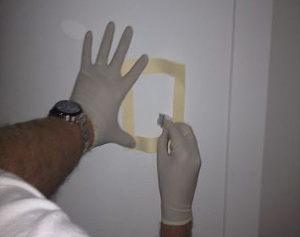The tenant’s two flatmates had been arrested at the premises in December last year by police citing firearms and drugs offences.
Although the tenant was at the flat, he was not involved nor was he arrested. He was then given a 14-day notice by the landlord to evict the two flatmates. This was done.
A composite methamphetamine test immediately arranged by the landlord confirmed the presence of the drug. No detailed test was carried out.
However, the landlord applied to the tribunal to evict the tenant on the grounds the breach of the tenancy agreement was incapable of remedy.
He claimed the tenant used the premises unlawfully, by using or allowing another person to use methamphetamine on the property.
The tribunal found there was no legal requirement to apply the New Zealand Standard for Testing and Decontamination of Methamphetamine Contaminated Properties in the landlord’s case for eviction of the tenant.
Arguing the tenant left the premises unsafe was a challenge for the landlord, said the tribunal, as the residues evidenced by the composite test did not prove it more than likely there were excesses above the level adopted as safe.
“The residue itself is an unseen chemical, not that dissimilar to other possible residual contaminants like nicotine or chemicals from harsh cleaning products.”
The tribunal cited Professor Sir Peter Gluckman’s 2018 report determining there was little evidence supporting health risks from exposure to residue from methamphetamine consumption.
His report says in the absence of other evidence of manufacture, any levels below 15μg/100cm² are highly unlikely to present adverse effects therefore there should be no need for remediation.
Recent decisions from the tribunal have found, based on the Gluckman report, landlords have been unable to prove methamphetamine contamination below 15μg/100cm² poses a health risk and therefore amounts to damage.
In its decision, the tribunal says it did not find the tenant intentionally permitted the premises to be used unlawfully.
“He responded to the 14-day notice to remove the offenders and he was absent at work for much of the time, making it reasonably possible he was unaware of the activities of the others until the police involvement. It would be inequitable to make an order terminating the tenancy.”
The tribunal ordered costs incurred in having the composite test done be paid by the tenant.



 Search
Search
